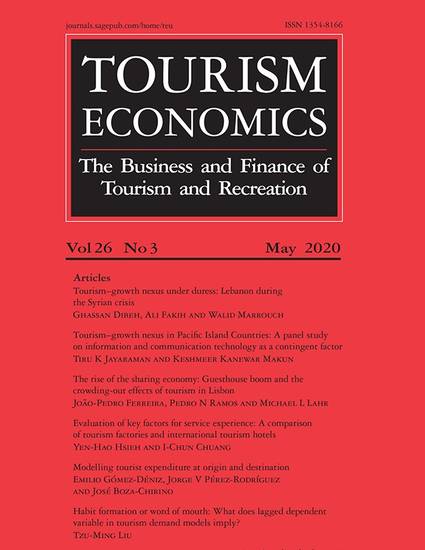
Article
Armed conflict, military expenditure and international tourism
Tourism Economics
(2019)
Abstract
This article uses a gravity model to explore whether military spending has any moderating effect on
the link between armed conflict and international tourist flows. The data set consists of a panel of
188 countries over the period 1995 to 2015. We show that the moderating effect of military
spending depends on the levels of relative military spending as well as geographical location.
Specifically, in the presence of armed conflict, ‘moderate’ level of relative military spending helps to
promote the international tourism attractiveness of destination countries, whereas ‘high’ level of
relative military spending cannot reverse the negative impact of armed conflict, it rather fuels the
problem. In general, countries in regions such as Southeast Asia that allocate ‘moderate’ amount of
resources for security attract more international tourists relative to countries in regions, such as
the Middle East and North Africa, that spend a larger share of GDP on security.
Keywords
- armed conflict,
- geographical location,
- gravity model,
- international tourism,
- military expenditure
Disciplines
Publication Date
Spring May 24, 2019
Citation Information
Khalid Usman, Luke Okafor and Nusrate Aziz. "Armed conflict, military expenditure and international tourism" Tourism Economics (2019) Available at: http://works.bepress.com/nusrate_aziz/40/
